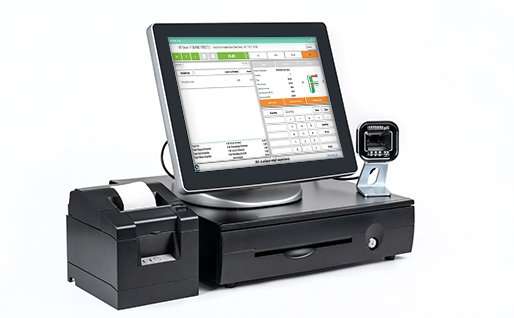Accounting Software in Kolkata
Accounting software
is a type of software designed to help businesses and individuals manage their
financial transactions, track income and expenses, generate financial reports,
and perform various accounting tasks. It automates many aspects of financial
management, simplifying and streamlining accounting processes. Here are some
key features and benefits of accounting software:
Bookkeeping:
Accounting software enables businesses to record and organize financial
transactions such as sales, purchases, receipts, and payments. It automates the
process of journal entries and general ledger maintenance, ensuring accurate
and up-to-date financial records.
Invoicing and
Billing: Accounting software allows businesses to create and send invoices to
clients and customers. It can generate professional-looking invoices, track
payment status, and manage billing cycles, reducing manual effort and improving
cash flow management.
Expense Tracking:
Accounting software helps track business expenses by categorizing and recording
them. It may support expense management features such as receipt scanning,
expense categorization, and reimbursement tracking.
Financial
Reporting: Accounting software generates various financial reports, such as
profit and loss statements, balance sheets, cash flow statements, and tax
reports. These reports provide insights into the financial health of the
business and aid in decision-making.
Bank Reconciliation:
Accounting software facilitates the reconciliation of bank statements with the
businesss financial records. It compares transactions from bank statements to
those recorded in the software, ensuring accuracy and identifying any
discrepancies.
Tax Management:
Many accounting software solutions include tax management features that help
businesses calculate and track taxes, generate tax reports, and ensure
compliance with tax regulations.
Integration with
Banking and Payment Platforms: Accounting software can integrate with banks and
payment processors, allowing for automatic import of transactions and seamless
reconciliation. It simplifies bank feeds, reduces manual data entry, and
improves accuracy.
Scalability and
Customization: Accounting software comes in various versions and editions,
catering to businesses of different sizes and industries. It often offers
customization options to adapt to specific accounting requirements and
workflows.
Benefits of using
accounting software include:
Time and cost
savings: Automation reduces the manual effort required for accounting tasks,
saving time and reducing the chances of errors. It also eliminates the need for
manual record-keeping and data entry, reducing administrative costs.
Improved accuracy:
Accounting software performs calculations and updates financial records
automatically, reducing the risk of human errors associated with manual
bookkeeping.
Financial
visibility: By providing real-time access to financial data and generating
reports, accounting software enables businesses to gain a clear understanding
of their financial position and make informed decisions.
Compliance and
auditing: Accounting software helps businesses maintain accurate financial
records, facilitating compliance with tax regulations and simplifying the
auditing process.
Streamlined
collaboration: Accounting software allows multiple users to access and
collaborate on financial data simultaneously, improving communication and
coordination between accounting teams and other departments.
Scalability and
growth: As businesses expand, accounting software can accommodate increasing
transaction volumes and support additional features and functionalities.
When choosing
accounting software, consider factors such as the specific accounting needs of
your business, user-friendliness, scalability, integration capabilities with
other software, customer support, and cost. Its important to evaluate multiple
options and select the software that best aligns with your organizations
requirements and goals.
